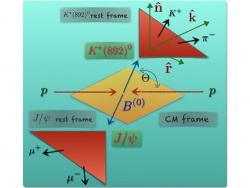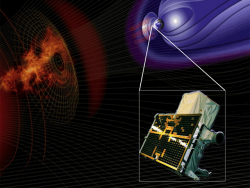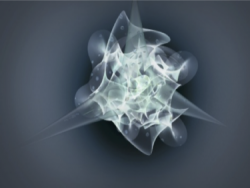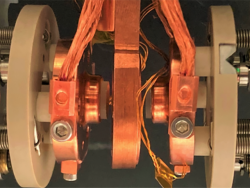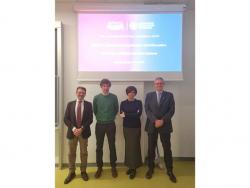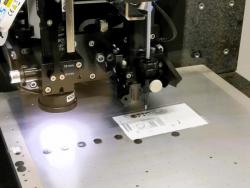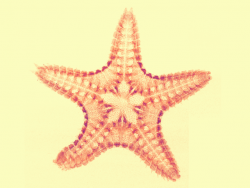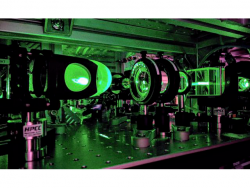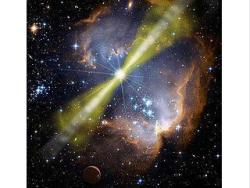- Home
- Dipartimento
- Ricerca
- Didattica
- Post Lauream
- Trasferimento della conoscenza
- Come fare per
Struttura e Reattività delle Superfici dei Solidi
The research activity of the group is dedicated to the study of surface structure and catalytic processes at the atomic scale. STM results are typically complemented by spectroscopic measurements and DFT calculations, both performed through external collaborations, inside and outside IOM.
In this context, two main research topics are presently addressed:
Growth, properties and reactivity of carbon-based 2D layers. Growth mechanisms for pristine and (N/B/TM-)doped graphene layers are investigated at the atomic scale during the growth process at technologically relevant temperatures and on both model surfaces and polycrystalline metal substrates, under hydrocarbon exposure and with time resolution up to video rate and above. Structural and electronic properties of the produced layer are investigated by VT-STM, LT-STM and STS, which are complemented by XPS, UPS and XPEEM/LEEM experiments. The reactivity of the layer is investigated by VT-STM under gas exposure. Experimental results are rationalized thanks to numerical simulations.
Self-assembling, structure and reactivity of organic layers. The systems of interest are thin films of organic semiconductor molecules (polyacenes, porphyrines, phthalocyanines) on transition metals or 2D materials. The assembling dynamics are investigated by means of both LT- and VT-STM. The morphology and the structure of the thin films are characterized by LT-STM at 4K and are complemented by electronic (STS) and vibrational (IETS) spectroscopy measurements at atomic/molecular level. STM/STS results are combined with RESPES, NEXAFS and SFG experiments and rationalized by numerical simulations (all of them performed through external collaborations).
Info
Ultimo aggiornamento: 11-09-2025 - 08:37


